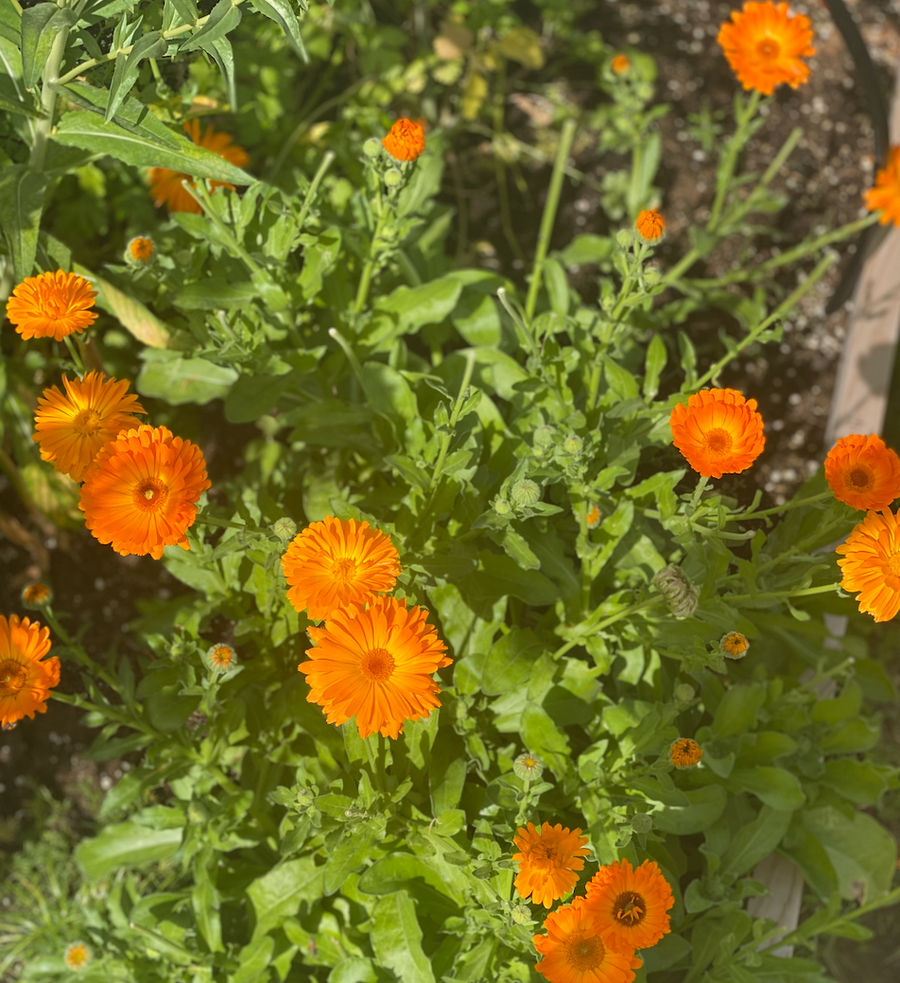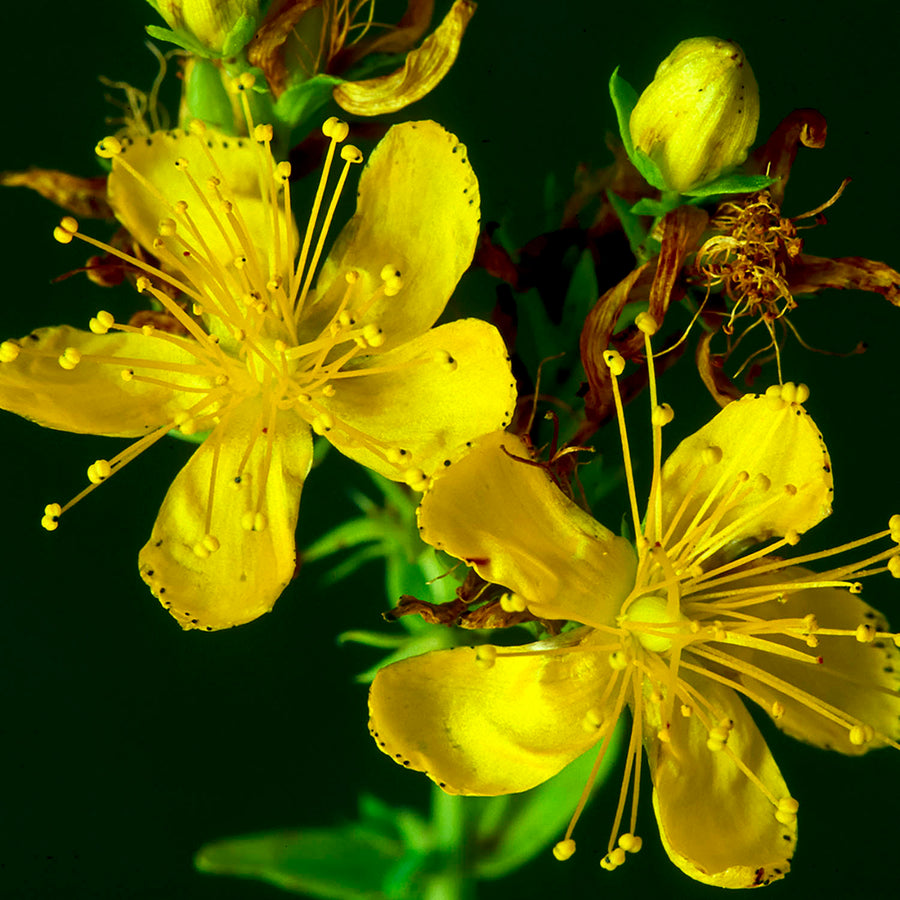The Power of Plants: How Herbalism Can Support Your Body's Elimination Pathways
Detoxification has become a popular buzzword in the health and wellness industry in recent years. The idea that we can rid our bodies of harmful toxins by following a specific diet or using specific supplements has gained a lot of attention. However, many herbalists bring nuance and caution to this concept of detoxification and prefer to instead focus on supporting the body's natural elimination pathways using food, plants and herbs.
Firstly, it's important to understand what detoxification is and why it's unnecessary. Our bodies have built-in mechanisms for eliminating toxins, such as the liver, kidneys, and lymphatic system. These organs work together to filter out harmful substances and eliminate them from the body. Therefore, there is no need for us to do anything extra to "detoxify" our bodies.
In fact, some detox diets or supplements can actually be harmful to our bodies. They may restrict certain nutrients or be too harsh on our organs, leading to long-term damage.
Herbalists believe that rather than focusing on detoxification, we should focus on supporting the body's natural elimination pathways using food, plants and herbs. These pathways, which include the liver, kidneys, lungs, and skin, are responsible for removing toxins and waste from the body. When these pathways become overloaded or sluggish, it can lead to a host of health problems.
Introduction to Herbalism and Its Benefits
Herbalism, also known as herbal medicine or phytotherapy, is the use of plants for their therapeutic properties. For centuries, people have turned to herbs as a natural way to treat and prevent illness. Unlike synthetic drugs, which often come with unwanted side effects, herbs work in harmony with the body to promote healing and balance.
Herbs contain a wide range of active compounds, including vitamins, minerals and flavonoids.. These compounds work together to support the body's natural processes, including its elimination pathways. When used correctly, herbs can help to strengthen the liver, kidneys, and other organs involved in elimination, leading to improved overall health.
Understanding the Body's Elimination Pathways
Before we dive into how herbalism can support the body's elimination pathways, it's important to understand how these pathways work. The liver, kidneys, lungs, and skin are responsible for removing toxins and waste from the body. Each of these pathways plays a unique role in eliminating different types of toxins.
The liver, for example, is responsible for filtering toxins from the blood and converting them into less harmful substances that can be eliminated from the body. The kidneys filter waste products from the blood and excrete them in the urine. The lungs remove gases and other volatile compounds through respiration, while the skin eliminates toxins through sweat.
When these pathways become overloaded or sluggish, toxins can build up in the body, leading to a range of health problems. This is where herbalism can be especially helpful.
The Role of the Liver in Eliminating Toxins
The liver is one of the most important organs involved in the body's elimination pathways. It plays a crucial role in breaking down toxins and converting them into less harmful substances that can be eliminated from the body. It is considered the body's primary detoxifying organ, responsible for breaking down and removing harmful substances, including drugs, alcohol, and environmental pollutants. The liver filters the blood as it flows from the digestive system before it enters the rest of the body, removing toxins and converting them into less harmful compounds. When the liver becomes overburdened with toxins, it can become sluggish, leading to a range of health problems.
The liver uses a two-step process to eliminate toxins from the body. The first step involves the liver enzymes breaking down the toxins into smaller molecules that can be easily processed. This process is called oxidation or reduction. The second step involves conjugation, where the liver combines the smaller molecules with water-soluble substances to make them easier for the body to eliminate. The liver then sends the conjugated toxins to the kidneys, where they are excreted in the urine.
The liver's ability to eliminate toxins can be negatively affected by various factors, including poor diet, excessive alcohol consumption, and exposure to environmental toxins. When the liver is overwhelmed with toxins, it can become damaged, leading to a variety of health problems. These problems include liver disease, such as cirrhosis and hepatitis, as well as an increased risk of cancer.
Fortunately, there are many herbs that can help to support liver function and promote detoxification. One of the most well-known liver-supportive herbs is milk thistle (Silybum marianum). Milk thistle contains a compound called silymarin, which has been shown to protect liver cells from damage and promote regeneration.
Other herbs that can support liver function and promote detoxification include dandelion root (Taraxacum officinale), burdock root (Arctium lappa), and turmeric (Curcuma longa). These herbs can be taken as teas, tinctures, or supplements to support liver health and promote optimal elimination pathways, under the guidance of a trained herbalist.
How Plants Can Support the Liver and Other Elimination Pathways
In addition to supporting the liver, plants and herbs can help to promote optimal function of the other elimination pathways, including the kidneys, lungs, and skin. For example, herbs such as nettle (Urtica dioica) and cleavers (Galium aparine) can support kidney function and promote healthy urine flow, while herbs such as elecampane (Inula helenium) and thyme (Thymus vulgaris) can support respiratory health and promote healthy lung function.
Herbs can also be used topically to support skin health and promote detoxification. For example, herbs such as calendula (Calendula officinalis) and comfrey (Symphytum officinale) can be used in salves or creams to soothe and heal the skin.
Types of Herbs That Support Elimination Pathways
There are many herbs that can support the body's elimination pathways. Here are some of the most commonly used herbs for each pathway:
- Liver: milk thistle, dandelion root, burdock root, turmeric, schisandra (Schisandra chinensis)
- Kidneys: nettle, cleavers, horsetail (Equisetum arvense), uva ursi (Arctostaphylos uva-ursi)
- Lungs: elecampane, thyme, mullein (Verbascum thapsus), licorice (Glycyrrhiza glabra)
- Skin: calendula, comfrey, plantain (Plantago major), chamomile (Matricaria chamomilla)
Using Herbal Remedies for Elimination Pathways Support
As herbalists, we use different preparation methods. Here are some of the most common methods:
- Teas: Herbs can be brewed into teas and consumed throughout the day. To make a tea, steep one teaspoon of dried herb in one cup of hot water for 5-10 minutes.
- Tinctures: Tinctures are concentrated extracts of herbs that are taken in small amounts.
- Supplements: Herbs can also be taken in supplement form, such as capsules or tablets.
- Topicals: Herbs can be used topically in salves, creams, or poultices to support skin health and promote detoxification.
When using herbal remedies, it's important to follow dosage instructions carefully and to consult with a trained herbalist if you have any underlying health conditions or are taking medications.
Incorporating Plants and Herbs into Your Daily Routine
Incorporating plants and herbs into your daily routine is a great way to support your body's elimination pathways and promote overall health. Here are some tips for incorporating herbs into your daily routine:
- Drink herbal teas throughout the day.
- Add herbs to your meals, such as fresh parsley or cilantro.
- Take herbal supplements or tinctures as directed by your trained herbalist.
- Use herbal remedies topically to support skin health.
Other Lifestyle Changes for Optimal Elimination Pathways Support
In addition to incorporating plants and herbs, there are many other lifestyle changes you can make to support your body's elimination pathways. Here are some tips:
- Drink plenty of water to support kidney function and promote healthy urine flow.
- Exercise regularly to promote healthy circulation and lymphatic drainage.
- Practice deep breathing exercises to support lung health.
- Eat a diet rich in fruits, vegetables, and whole grains to support liver function.
- Avoid or limit alcohol, caffeine, and processed foods, which can be hard on the liver and other elimination pathways.
By making these lifestyle changes in addition to incorporating plant remedies, you can promote optimal function of your body's elimination pathways and support overall health.
Precautions and Considerations for Using Herbs for Elimination Pathways Support
While herbs can be a safe and effective way to support the body's elimination pathways, there are some precautions to keep in mind. Here are some things to consider:
- Some herbs can interact with medications, so it's important to consult with a trained herbalist before using herbs if you are taking any medications.
- Some herbs can be toxic in large doses, so it's important to follow dosage instructions carefully.
- Some herbs can cause allergic reactions in some people, so it's important to start with small doses and monitor for any adverse reactions.
Conclusion
Herbalism is a powerful modality for supporting the body's elimination pathways and promoting overall health. By incorporating herbs into your daily routine and making other lifestyle changes, you can support optimal function of your liver, kidneys, lungs, and skin. Remember to consult a trained herbalist if you have any underlying health conditions or are taking medications. With the right guidance, herbalism can be a safe and effective way to promote optimal health and wellness.





